The Maids is a fascinating document. Written in 1947, Jean Genet’s drama portrays a pair of serving girls who enact sexually loaded fantasies while dressed in the clothes of their employer, Madame, whose murder they are secretly plotting. This macabre sketch still resonates because it analyses and presages the key social transition of the 20th century, namely the overthrow of privilege by the underclass. And it boasts extra layers of erotic chic because the sexually inquisitive maids are sisters and because Genet suggested that the girls might be played by men in drag. This delicate, subtle work is as firmly rooted in its historical era as another classic political allegory, Animal Farm, to which it bears some similarities.
Jamie Lloyd has based his update on two bold decisions. The 20th century didn’t happen. And Genet will function perfectly well if we pretend he’s a modern scribbler. The difficulty is that nobody has servants any more except billionaires and celebrities so Lloyd flies the script out to California (or somewhere like that) and parachutes the maids into the opulent mansion of a squawking super-rich parasite. Actually, it’s not that opulent as there’s no furniture. The action is played on a rostrum with multicoloured floor tiles overhung by a wooden canopy on stilts, which resembles a box in a museum. Denuding the stage of domestic detail removes any air of transgression or excitement as the girls cavort and pose in Madame’s borrowed silks. Nor is there any sense of anxiety that Madame might appear at any moment and discover them at their sport.
Blaring lights and thumping music create a vapid MTV atmosphere, which further distances us from the point and substance of Genet’s original. And yet some vestigial traces remain. The sisters claim to be devout Catholics who nightly pray on bended knee. And they wear black and white ‘French Maid’ outfits, which these days are favoured only by webcam starlets catering to a niche market of bedsit self-satisfiers. Madame (Laura Carmichael, doing her best) is supposed to be wealthy but her style is more Primark shoplifter than West Coast trophy wife. She swishes around in a nylon eruption of fake squirrel fur that looks as if it might burst into flames if it brushed against a light switch. And the casting creates further needless mischief. Carmichael, pushing 30, is the same age as the pair playing the maids and this damages a key moment in the second half. Detecting a mood of mutiny below stairs, Madame hints that she may bequeath her house to the sisters in her will. Is this shrewdly manipulative or genuinely altruistic? The uncertainty deepens the storyline and provides fresh insights into all three characters. But it makes sense only if Madame is the girls’ senior by two decades or so. If she’s their contemporary, with an identical life expectancy, the offer is meaningless and the plot loses yet another accessory from its meagre deployment of effects.
At the curtain call the entire audience rose from its distracted stupor and whooped and clapped like kids feeling the burn of a doughnut sugar-rush. Crazed accolades like this have become a fixture of West End openings and the applause is usually led by a hot young blonde in Row B who wants her carefully selected press-night ensemble to win a few seconds of attention from the London crowd. Nothing wrong with that. But these Vesuvian cataclysms have absolutely no bearing on their apparent subject.
Mel Giedroyc is a TV star who wants to broaden her career on stage. Charming, popular and comically adroit, Mel G has chosen to appear in an American adoption melodrama at a London fringe venue. She plays Amy, the adoptive mom of an African migrant, Luce, whose piercing intellect makes him the star pupil at high school. Under pressure to succeed on behalf of his race, Luce buckles and starts to behave suspiciously. A raid on his locker reveals ‘illegal fireworks’. Yes, illegal. This may baffle British audiences, who are under the impression that American teenagers are free to buy assault rifles, rocket launchers and anti-aircraft missiles at every candy store in the Union. Luce’s pyromania brings his dad, Peter, and his teacher, Harriet, into the story and the adults tussle and carp over Luce’s upbringing.
The shouty dialogue is remarkably humourless and the emotional strands of the plot are almost entirely opaque. The issue appears to be lust and/or ethnic pride. Luce’s parents are white but Harriet (who may desire to mother or to seduce Luce, or both — it’s unclear) is African-Caribbean. The play creates the unsettling impression of a society in which liberty and defiance have become confused. The forces of American democracy appear to have turned on each other. Not an uplifting night. Mel G will get better offers than this. Soon, I hope.
Got something to add? Join the discussion and comment below.
Get 10 issues for just $10
Subscribe to The Spectator Australia today for the next 10 magazine issues, plus full online access, for just $10.

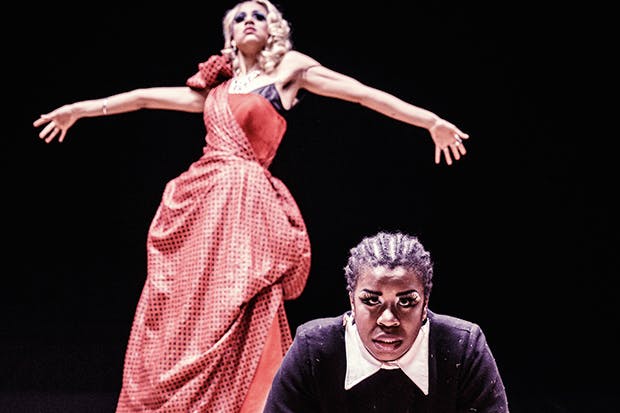
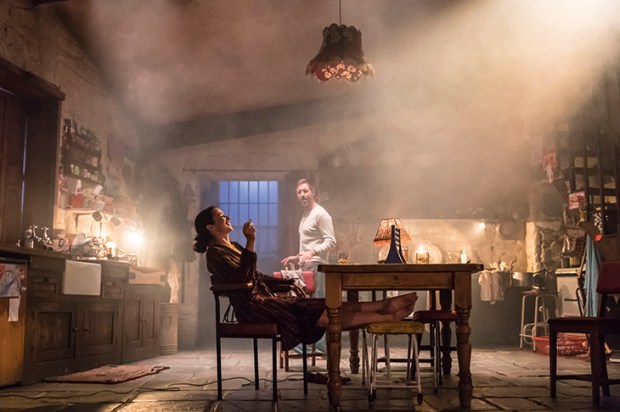


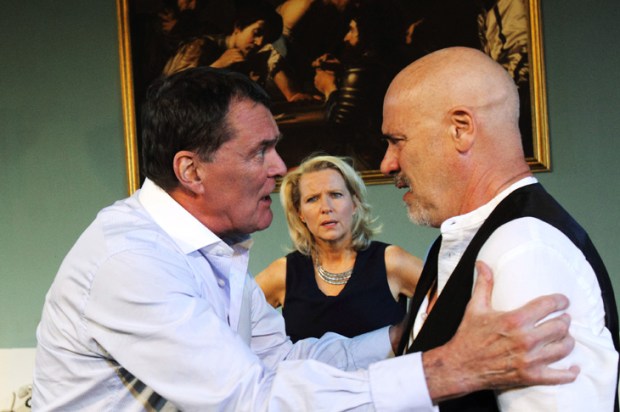
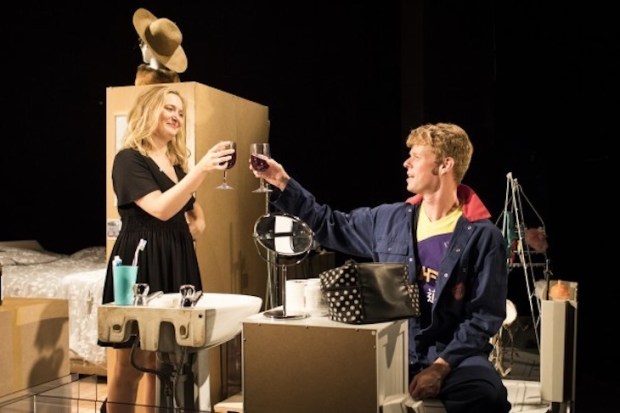
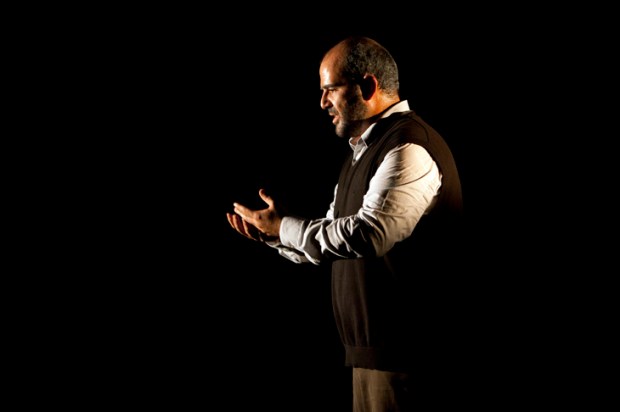






Comments
Don't miss out
Join the conversation with other Spectator Australia readers. Subscribe to leave a comment.
SUBSCRIBEAlready a subscriber? Log in